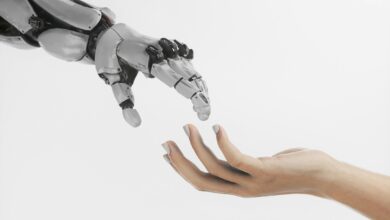
What traits define the very best entry level workers? Five years ago, it’s likely that drive, work ethic and integrity were non negotiables. Now, artificial intelligence literacy has become equally vital.
Early career professionals are entering a workplace that is being reshaped by artificial intelligence (AI). According to research from Deloitte this is welcome news, with 83% of early career workers already using AI in their jobs, and four in five expressing excitement about AI’s potential to enhance their output. At the same time, however, just under three in ten (28%) are worried that automation might impact their learning opportunities and lead to fewer chances for on-the-job-development.
This paradox reflects the changing nature of professional growth in the professional services sector, in industries such as architecture, engineering, and management consulting. Across the sector, AI continues to automate routine tasks that once formed the foundation of entry-level work. As traditional activities like document management or reporting have become increasingly AI-led, organisations face a challenge in how they develop and nurture talent.
While many forward-thinking organisations are taking the opportunity to create more meaningful early-career experiences, others are struggling to nurture the critical thinking and domain expertise essential for success. Our own research found that 85% of professional services firms either strongly or somewhat agree that their recruitment needs are changing the more that they adopt AI, while 80% agree that they are not sure how to attract young talent.
Entry level positions in the age of AI
It’s irrefutable that – since the emergence of Generative AI in 2022 – administrative work has changed for good. Today, AI-powered software solutions are handling the routine aspects of workflow management that once served as the foundation of apprenticeships.
The efficiency gains are remarkable, and it is little surprise that 79% of firms are planning to invest more in emerging technologies. Tasks that once consumed days can now be completed in hours or even minutes with AI’s assistance. This creates capacity to redirect attention towards higher value activities that develop both business outcomes and professional capabilities simultaneously.
As a direct result, young architects can spend more time on design development rather than document coordination. Junior engineers can focus on technical problem-solving instead of preparing routine calculations. New consultants can participate in client-facing meetings rather than struggling with back-office documentation. This means newcomers are still able to learn industry terminology, processes, and standards but do so while contributing to project delivery, rather than being confined to admin-heavy tasks.
These enriched experiences yield multiple benefits. Client satisfaction improves as junior staff bring fresh perspectives and energy, which innovation accelerates as diverse viewpoints enter the conversation earlier. Most importantly, early-career professionals develop deeper engagement and motivation when they can see their contributions making meaningful impact.
Despite all of these benefits, this automation of entry-level tasks creates challenges which must be tackled. The technology delivers immediate efficiency gains and cost savings but also disrupts traditional career development pathways that have been established over decades.
What this means for the future of early professional services careers
As transformation continues, organisations must adapt across hiring, upskilling and career progression.
Recruitment must focus on identifying candidates with both technical aptitude and the uniquely human capabilities that complement AI, including creativity, ethical judgment, communication skills and adaptability. Traditional experience requirements may become less relevant than demonstrated problem solving ability and a willingness to learn. Helpfully, predictive AI algorithms can identify gaps in current staff capabilities and suggest tailored recruitment or training strategies such as personalised employee development by analysing skills, performance data and career goals.
Hiring and onboarding programmes need restructuring to emphasise AI literacy alongside industry fundamentals. New hires must understand both the capabilities and limitations of AI, as well as the optimal time to embrace it as an assistant. Skills such as effective prompt engineering, evaluating AI outputs and working with industry-specific tools like generative design platforms and computational modelling software are becoming increasingly valuable.
The ability to collaborate with AI systems while maintaining professional judgment about their outputs will set apart top talent. In turn, this approach nurtures critical thinking and domain expertise while addressing the growing skills gap between traditional education and today’s workplace requirements.
There will be hurdles to overcome. Traditional apprenticeships, for instance, have relied on junior staff learning through repetitive tasks and being mentored closely as their skills develop.
With AI taking on these duties, line management will have to adapt, while career progression frameworks of early workers must change to recognise contributions beyond traditional administrative metrics, to modernise recruitment and onboarding programmes. We’ll also see these pathways flex to reward innovation, client satisfaction and technical excellence rather than time-based progression.
When we consider what defines exceptional entry-level talent in 2025, it’s clear that drive, work ethic, and integrity haven’t diminished in importance, but have been amplified by the need for AI literacy. Professional development must be reimagined for a technology-augmented workplace and represent the most viable route to long and fulfilling careers for the next generation.





